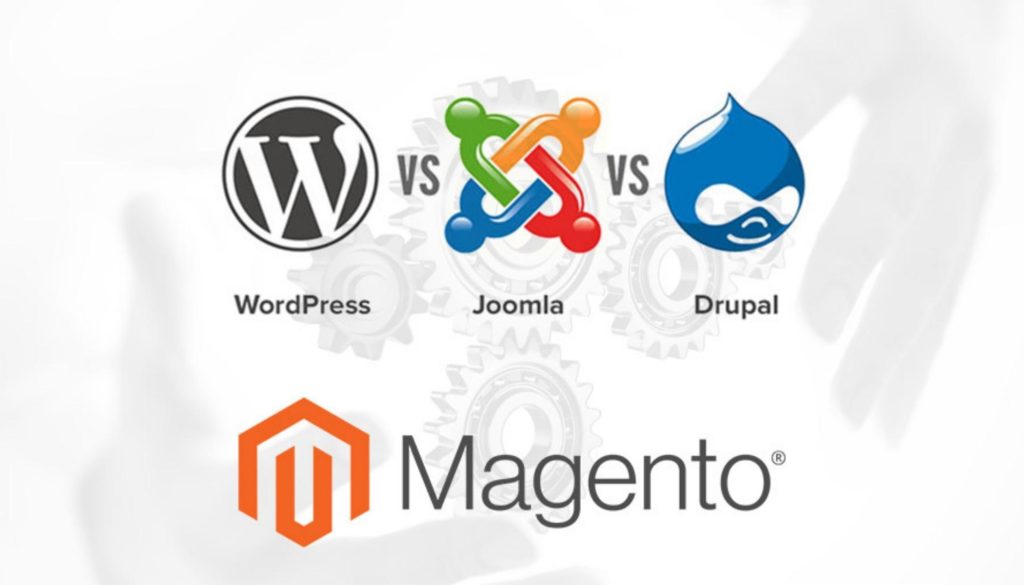In most cases, the hosting market is a highly competitive low-cost sector in which the great majority of providers fight on price with quite aggressive offers.
This motivates many companies, whether small or large, to push their resources to reduce prices. Unfortunately, as a result of this, the practice of overselling (similar to “overbooking” in other industries) is widespread. I’ve had firsthand experience with a lot of these types of web hosting providers.
What makes it tough to select a decent hosting provider for your website?
It is quite easy for dishonest advertising from a variety of sources to mislead you.
For example, you may claim that your low-cost hosting is optimized for WordPress, Joomla, and similar web applications, but this is simply a lie because the installation, after a small amount of traffic with several concurrent users, will throw the servers like a house of cards due to a lack of resources.
The key point here is that if you want to create a serious web project, such as a blog, a forum, an online store, or anything other than simple static web pages, the best (and, more importantly, the cheapest) way to do so today is to use open-source PHP applications such as WordPress, Joomla, phpBB, Prestashop, Magento, or similar.

And these applications will necessitate the use of a robust hosting server in order to run the PHP code.
Many individuals are unaware that a PHP program, such as the ones described, does not use the same amount of server resources as a basic collection of static web pages: a PHP application, ASP.NET, Java, and so on, are considerably more demanding on the servers.
Furthermore, these programs typically store their content in databases such as MySQL (as is the case with WordPress), which adds additional load to the server.
How would they know if they weren’t technically savvy?
So, if you use any of these applications, you should keep reading so that you don’t stop.

How to tell the difference between good and bad hosting?
First and foremost, be aware of the standard “Hosting for €1.99 per month” pitches.
Strong hosting necessitates good servers, good support, and, equally or more crucially, good technical assistance because issues are unavoidable.
Things have a cost, and if you try to go below it, you are cheating. As a result, as a general rule, I would be skeptical of any hosting that costs less than €4-5 per month. That is the point at which I have seen it become possible to give an excellent service.
However, many providers state in their basic offerings that they support PHP apps and MySQL databases, meaning that everything is ready to serve WordPress applications without issue.

What they fail to consider is that the limited resources of their servers will not get you anywhere and that if you only have a few users viewing your blog at the same time (after sharing it on Facebook, for example), the server will be incredibly slow and may even crash many times.
Furthermore, when these companies get to the “professional” alternatives, the resources are still pretty reasonable for what a good hosting needs, not to mention that if that isn’t enough, they become pricey.
But, as I previously stated, you may also purchase high-quality, low-cost hosting.
As you can see, the problem lies in the fine print.

Which hosting service should I use: Criteria for selecting the best hosting?
If you want to employ a good hosting company, the first step is to understand which features are important and which are not.
So, we’ll go through each of the important features so you know how to correctly evaluate them when evaluating a hosting provider’s offer.
Money-back guarantee
The most crucial benefit of hosting, by far, is that it comes with a money-back guarantee.
Very easy, because, as you will see in the rest of this article hosting cannot be evaluated on paper, and it is probable that you may be dissatisfied with your choice. And, in particular, if you select a hosting provider for less than the pricing range I previously indicated, it will almost likely happen to you sooner or later.
That is, you won’t be able to assess the quality of a hosting service until you use it. As a result, there is no other option but to try, and in that sense, a money-back guarantee means that if you are unhappy with your choice, it will not be difficult to change.

Page loading speed
The loading speed of the pages is the most visible difference between good and terrible hosting. Nobody hates it when a page takes a long time to load, and the longer it takes, the more likely we are to abandon it.
However, various research has been conducted on the impact of loading time on user abandonment rate.
Your website’s effective speed will be determined by two factors:
- The quality of your hosting’s servers and network (Internet access).
- The size of your web pages.
The first issue concerns the hosting provider’s use of powerful servers, fast storage such as SSD hard drives, and, most importantly, not overloading their equipment with an excessive number of clients.
The difficulty is that providers do not disclose this information; instead, they supply technical information such as the type of CPUs used in their servers, whether or not they employ SSD storage, and so on. However, all of this is for naught if they later place too many clients in the machines, which is a truth that no provider will reveal to you.
On the other hand, you can have the best hosting in the world that if you later have a poorly made website, for example, a website with unoptimized images, with huge file sizes, everything will go to waste too.
So, in this case, you must do things correctly on both your website and the hosting side.

Technical support
One of the most underestimated benefits of hosting contracts is technical support. I notice that individuals pay a lot of attention to things that do not provide them with anything, such as infinite disc space, yet do not place a high enough value on something as crucial as well technical assistance.
There are numerous simple jobs and mishaps that can become complicated for you, causing you to waste hours and hours, and that skilled assistance can fix in a second.
And once you get some visibility, you will notice that the dwarfs will “grow” as a result of attacks on your website, etc. You just cannot do without a good technical team to resolve these difficulties at that moment.
Again, in an extremely low-cost hosting environment, it is hard to match assistance. And we’re talking about personnel expenditures, which means that excellent technicians’ salaries are pricey in comparison to the machines. It is hard for a hosting provider to provide adequate computers and service for €3 per month, especially when the accounts do not add up. It’s as simple as that.
In terms of support channels, the following three are typical:
- An online support chat.
- Telephone support is available.
- Support is provided through a ticket system, with response times for support tickets of no more than one hour.
After years of experience, I believe that the ticket system is the most crucial alternative for me.

The rationale is simple: if the support is good, it is the most efficient. The phone wastes a lot of time because only minor issues may be anticipated to be resolved quickly. And for issues that cannot be resolved immediately, the phone and, much more so, chat are more of a hindrance than aid because you must wait for the technicians to do their task.
It is far more efficient to state the problem exactly in the ticket and wait for them to handle it without you “looking over their shoulder.”
And here’s a helpful hint: make use of the warranty term and contact support.
As previously stated, support is the most sensitive aspect of hosting; it is here that you will be able to determine if you have bad or good hosting on your hands.
And doing it is really simple: even if you don’t really need it, you can get it by simply asking a “silly question” or performing slightly more difficult work, even if you already know how to do it. For instance, being shown how to set up a second WordPress installation in a subfolder with a subdomain.
This way, you’ll have a sense of how things work, and if you’re not convinced, you’ll still have time to get your money back.




